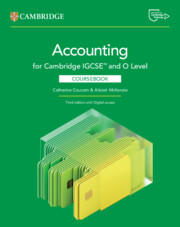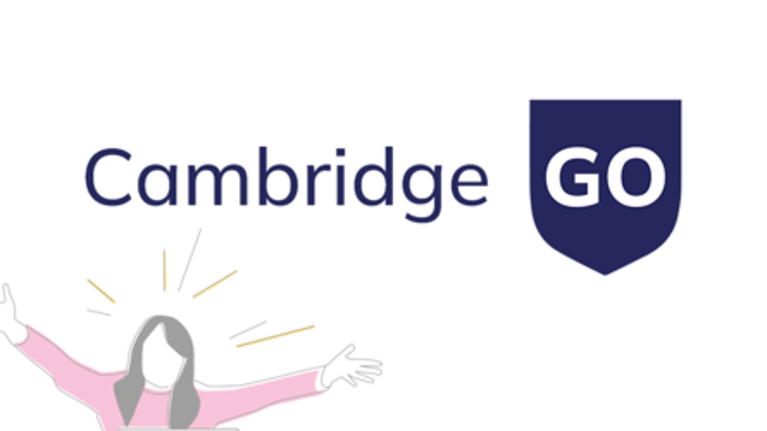Cambridge IGCSE™ and O Level Accounting Workbook with Digital Access (2 Years)
Overview
This print and digital workbook provides additional exercises and practice questions to enable students to develop their skills. The activities can be used in class or outside the classroom as homework. It follows the same chapter structure as the coursebook, so you can confidently use it to support your lessons. Activities increase in difficulty to support students as they progress through the course, focusing on key skills such as evaluation and analysis. This workbook supports the Cambridge IGCSE™ , IGCSE (9-1) and O Level Accounting syllabuses (0452/0985/7707) for examination from 2027. Answers to activities are available to teachers via Cambridge GO.
Features
- Key skills activities support students as they progress through the course, with multiple stages focusing on a variety of skills including knowledge, evaluation and analysis.
- Practice questions enable students to practice what they have covered in each topic and prepare for assessment.
- Worked examples provide students with sample answers to help them understand how to approach each question.
- 'Improve this answer' exercises encourage students to assess a sample answer and apply improvements to their own answers.
- Learning intentions at the start of each chapter provide students with a clear focus to support their learning.
- Self-assessment opportunities enable students to assess their own work or the work of their peers in relation to the learning intentions.
- Tips are included throughout the workbook to provide additional support for students.
- Includes answers to the exercises and practice questions in this resource.
Contents
- Introduction
- Syllabus mapping
- How to use this series
- How to use this Teacher's Resource
- About the authors
- About the syllabus
- About the examination
- Approaches to teaching and learning
- Acknowledgements
- Section 1. Chapter 1. Introduction to accounting
- Chapter 2. Double entry book-keeping Part A
- Chapter 3. The trial balance
- Chapter 4. Double entry book-keeping Part B
- Chapter 5. Petty cash books
- Section 1 practice questions
- Section 2. Chapter 6. Business documents
- Chapter 7. Books of prime entry
- Section 2 practice questions
- Section 3. Chapter 8. Financial statements Part A
- Chapter 9. Financial statements Part B
- Chapter 10. Accounting rules
- Chapter 11. Other payables and other receivables
- Chapter 12. Accounting for depreciation and disposal of non-current assets
- Chapter 13. Irrecoverable debts and allowance for irrecoverable debts
- Section 3 practice questions
- Section 4. Chapter 14. Bank reconciliation statements
- Chapter 15. Journal entries and correction of errors
- Chapter 16. Control accounts
- Chapter 17. Incomplete records
- Chapter 18. Accounts of non-trading organisations (clubs and societies)
- Chapter 19. Partnerships
- Chapter 20. Manufacturing accounts
- Chapter 21. Limited companies
- Chapter 22. Analysis and interpretation
- Chapter 23. Technology and sustainability Section 4 practice questions.
Brighter Thinking Blog
Keep up to date with the latest classroom tips and educational trends from our brighter thinkers.
Visit the blogCatalogues and Ordering
Looking for something in particular or just browsing? View our catalogues to see our full range of print and digital books.
View and downloadAdvice on useful tools
Advice on useful tools, activities and timetabling from teachers experiencing school closures.
Cambridge GO
All our supporting resources have now moved to Cambridge GO – the new home for your Cambridge digital content.
Listen to our podcast
Listen to our podcast to discover teaching inspiration & advice from leading educational thinkers.






